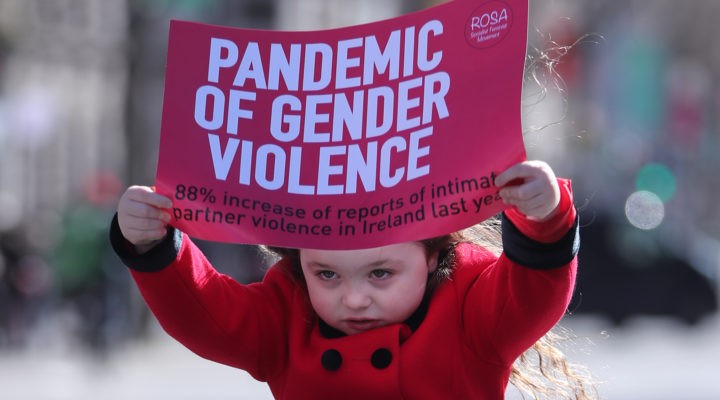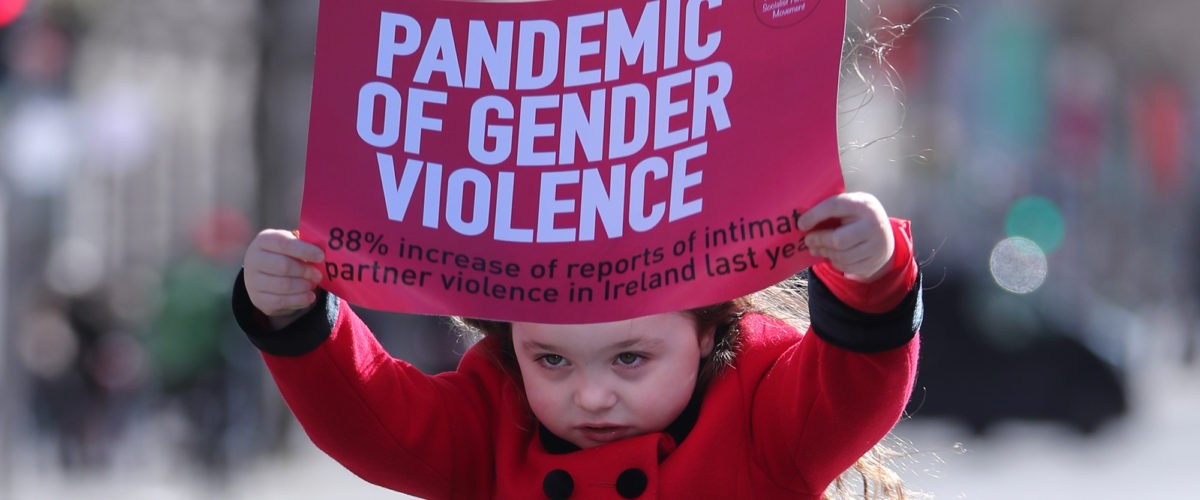In case you didn’t notice, women had a very bad week.
In Georgia, a Southern Baptist man shot and killed eight people, six of whom were women of Asian descent, because he wanted to eliminate temptation because of his sex addition. This incident is the very picture of the intersections of gender, race, class and religion that made these particular women socially and economically vulnerable to racialized gender violence by a white man who thought women of color were responsible for his sexual behavior.

Susan Shaw
In New York, sexual harassment and assault allegations against Gov. Andrew Cuomo continued to pile up, even as he refuses to resign.
Seven women now have accused Houston Texans quarterback Deshaun Watson of sexual assault.
The U.S. House voted to reauthorize the Violence Against Women Act that had expired under the previous administration. One hundred and seventy-two Republicans voted against it. Speaking of intersectionality — their opposition has to do with the bill’s inclusion of protections for transgender women, its expansion of gun restrictions, its inclusion of dating partners, and its expansion of jurisdiction for Indigenous authorities to prosecute non-Indigenous people who commit crimes on tribal lands. The bill may face a Republican filibuster in the Senate, where it needs 60 votes.
While the moniker, “March Madness,” applies only to the men’s NCAA basketball tournament, plenty of women are mad because of the association’s disparate treatment of the men’s and women’s tournaments. While the association provided the men with a state-of-the-art workout facility, primo swag bags, and top-quality snacks and meals, the women got a few free weights, a slim swag bag, and lower-quality food.
In London, protests erupted over the killing of British woman Sara Everard and the arrest of a British police officer for her murder. Police managed to make the situation worse by roughing up and arresting protesters.
Protests also raged in Australia as accusations of rape within the government’s halls of power came to light. More than 100,000 people took to the streets across 40 cities, proclaiming, “Enough is enough!”
“One in three women worldwide have experienced physical or sexual violence in their lifetime.”
The head of U.N. Women said the COVID-19 pandemic is “the most discriminatory crisis” women and girls ever have experienced and pointed out the concurrent “shadow pandemic” of domestic violence resulting from the COVID pandemic. Just the week before, a new U.N. study found that “one in three women worldwide have experienced physical or sexual violence in their lifetime.”
Turkey pulled out of the 2011 Istanbul Convention, the world’s first binding treaty that specifically requires governments to combat violence against women.
The Vatican said priests can’t bless same-sex unions.
The United States broke its own record for anti-transgender legislation proposed in a single year. Already this year, 82 anti-trans bills have been proposed in state legislatures around the country.
“The United States broke its own record for anti-transgender legislation.”
The high court in France ruled that sex with 13-year-old girls cannot be tried as rape, even as lawmakers were considering legislation to change the age of consent.
Demonstrators in Louisville, Ky., marked the one-year anniversary of the killing of Breonna Taylor by police. So far, none of the officers involved in the shooting have faced criminal charges.
The week before all of this, popular evangelical Bible teacher Beth Moore decided she has had enough of Southern Baptists. She announced she has left the denomination, primarily because of its leaders’ ongoing support of Donald Trump, despite his behavior toward women, and its mishandling of its sex abuse catastrophe.
On my own campus, we’ve been dealing with a crisis resulting from a report about a culture of sexual abuse at our president’s previous institution while he was there. All week, survivors have written and spoken about their own experiences, and many of us have spent hours in Zoom meetings, forums and special sessions trying to figure out how to respond to the crisis and support survivors. Unhappy with the president’s responses, our faculty senate voted no confidence in the president and the board of trustees on Thursday and called for their resignations.
Ironically enough, March is Women’s History Month. March 8 was International Women’s Day.
While making proclamations, highlighting outstanding women, and preaching a sermon on a text that features a woman are nice, they hardly begin to address the personal and structural violence this week alone has underlined. Despite limited progress, women, across all of their differences, are still subject to ongoing discrimination and misogynistic violence, ranging from ogling and inappropriate comments to sexual harassment, sexual assault and murder.
“I want to know when we’re going to take this seriously.”
I want to know when we’re going to take this seriously. Feminists have talked about these issues and offered solutions for decades, and yet the “angry feminist” trope persists as if we have nothing to be angry about.
Well, I am angry. And if you aren’t, I’d like to know why. These are things to be angry about.
These are not simply problems of the proverbial “bad apples.” These are deep structural problems that call for radical transformation of institutions, ideologies and people — including the church.
In theological language, this is the structural sin of sexism in which the church participates when it excludes women from leadership, teaches women’s submission and male headship, inherent LGBTQ sinfulness, purity culture and white Christian nationalism, and turns away from its responsibility to address gender violence within the church and the larger society.
This bad week for women isn’t an exception. It’s the rule.
What I wonder is what the church will do about it.
Susan M. Shaw is professor of women, gender and sexuality studies at Oregon State University in Corvallis, Ore. She also is an ordained Baptist minister and holds master’s and doctoral degrees from Southern Baptist Theological Seminary. Her most recent book is Intersectional Theology: An Introductory Guide, co-authored with Grace Ji-Sun Kim.
Related articles:
‘Jezebel’ is one of three common racial slurs against all Black women and girls | Opinion by Yvonne McLean
Baptist men, it’s time to listen to Baptist women. Not Baptist? If the shoe fits… | Opinion by Susan Shaw
Don’t let the Atlanta shooter off the hook by claiming women drove him to addiction | Opinion by Kaleb Graves
Women and the call to lead | Opinion by Erich Bridges


